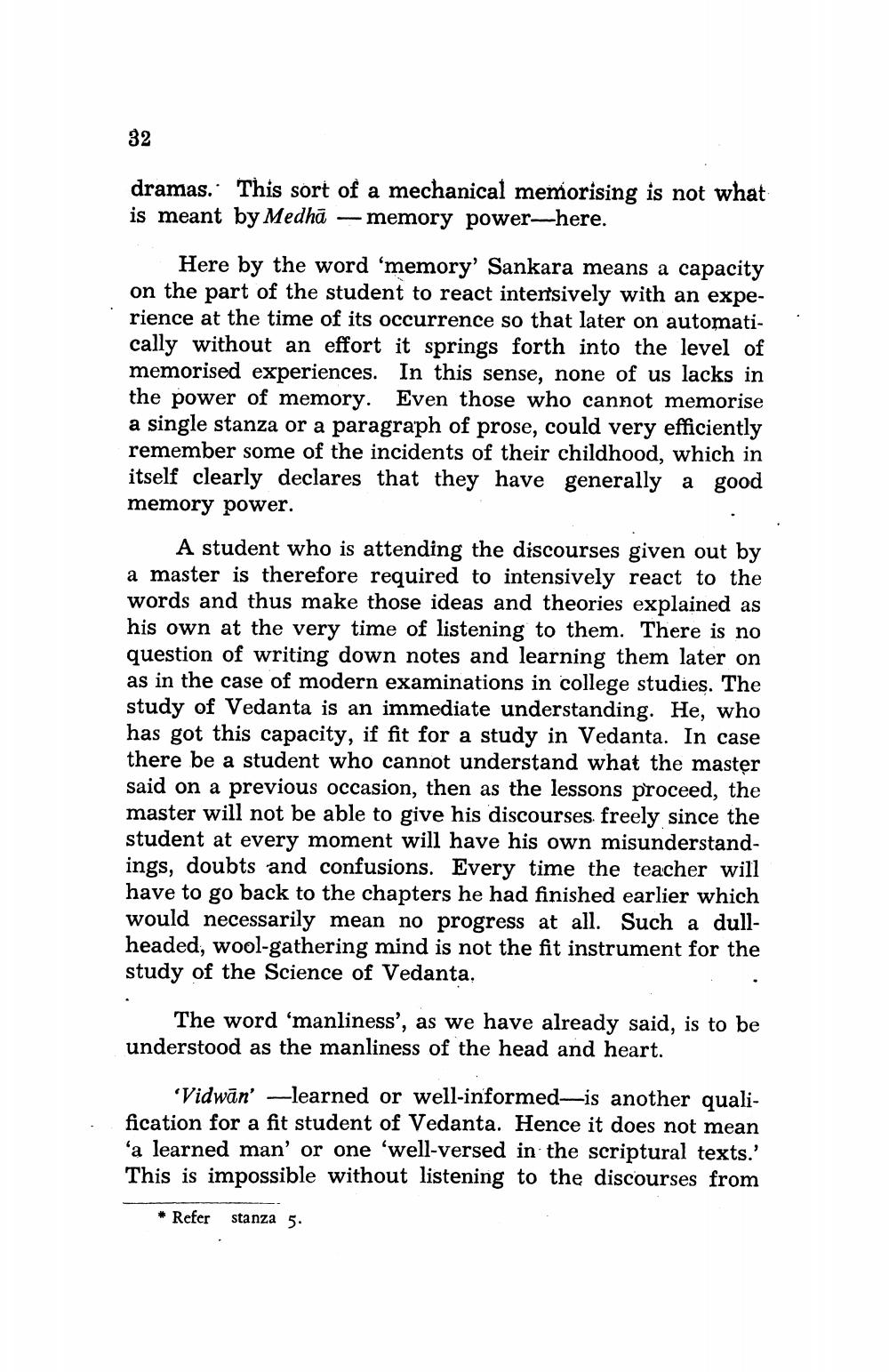________________
32
dramas. This sort of a mechanical memorising is not what is meant by Medhā — memory power--here.
Here by the word 'memory' Sankara means a capacity on the part of the student to react intentsively with an experience at the time of its occurrence so that later on automatically without an effort it springs forth into the level of memorised experiences. In this sense, none of us lacks in the power of memory. Even those who cannot memorise a single stanza or a paragraph of prose, could very efficiently remember some of the incidents of their childhood, which in itself clearly declares that they have generally a good memory power.
A student who is attending the discourses given out by a master is therefore required to intensively react to the words and thus make those ideas and theories explained as his own at the very time of listening to them. There is no question of writing down notes and learning them later on as in the case of modern examinations in college studies. The study of Vedanta is an immediate understanding. He, who has got this capacity, if fit for a study in Vedanta. In case there be a student who cannot understand what the master said on a previous occasion, then as the lessons proceed, the master will not be able to give his discourses freely since the student at every moment will have his own misunderstandings, doubts and confusions. Every time the teacher will have to go back to the chapters he had finished earlier which would necessarily mean no progress at all. Such a dullheaded, wool-gathering mind is not the fit instrument for the study of the Science of Vedanta,
The word 'manliness', as we have already said, is to be understood as the manliness of the head and heart.
'Vidwān' - learned or well-informed—is another qualification for a fit student of Vedanta. Hence it does not mean "a learned man' or one 'well-versed in the scriptural texts.' This is impossible without listening to the discourses from
• Refer
stanza 5.




